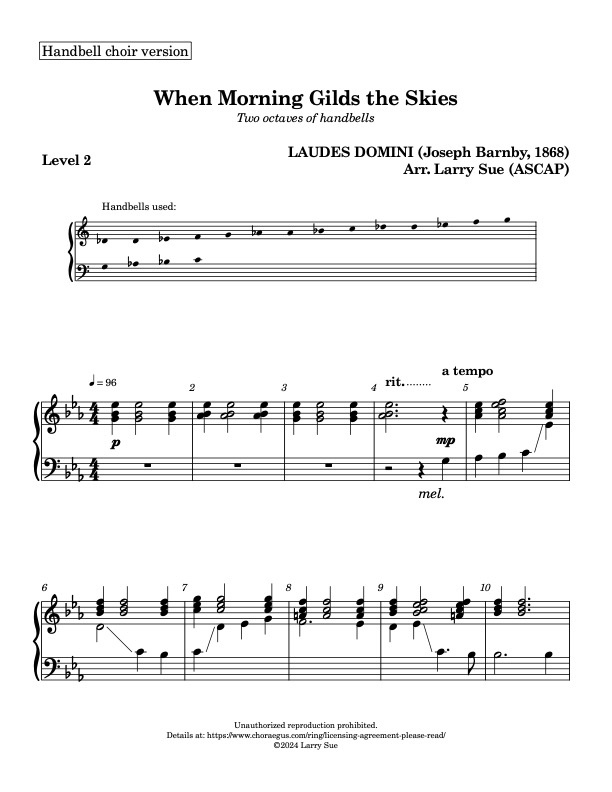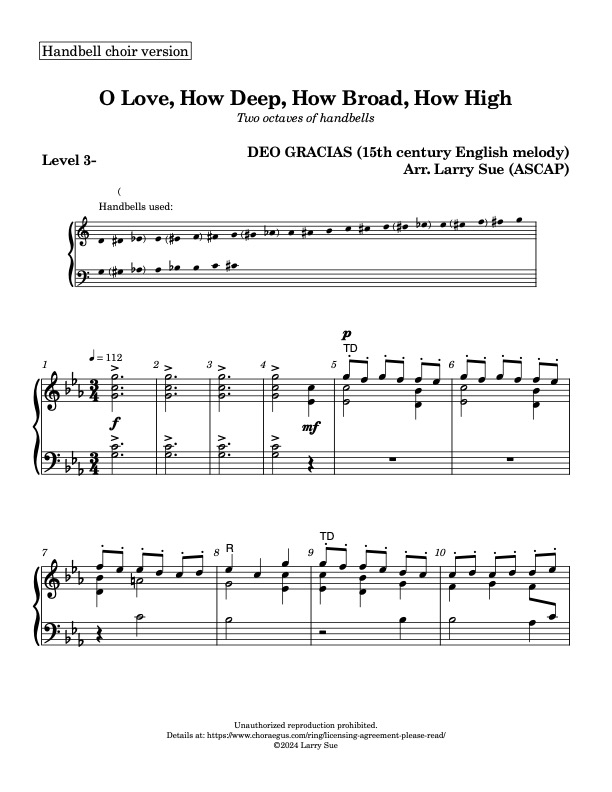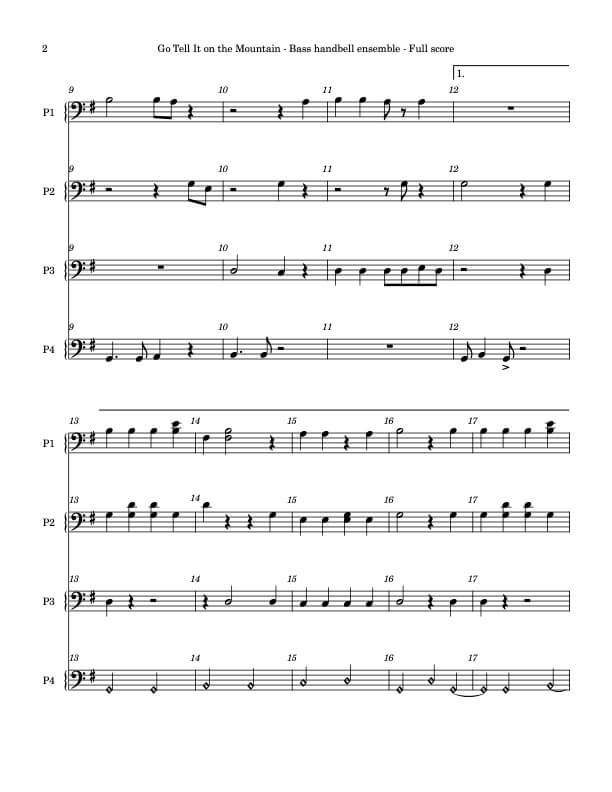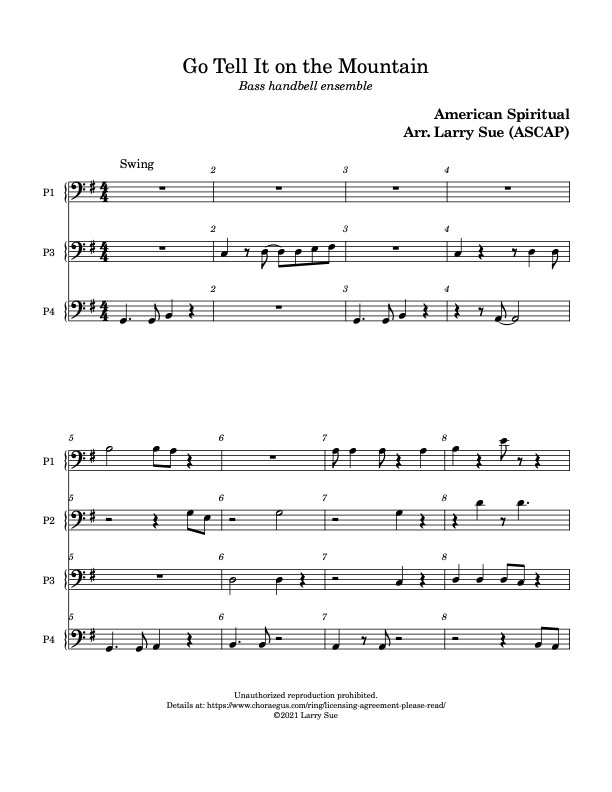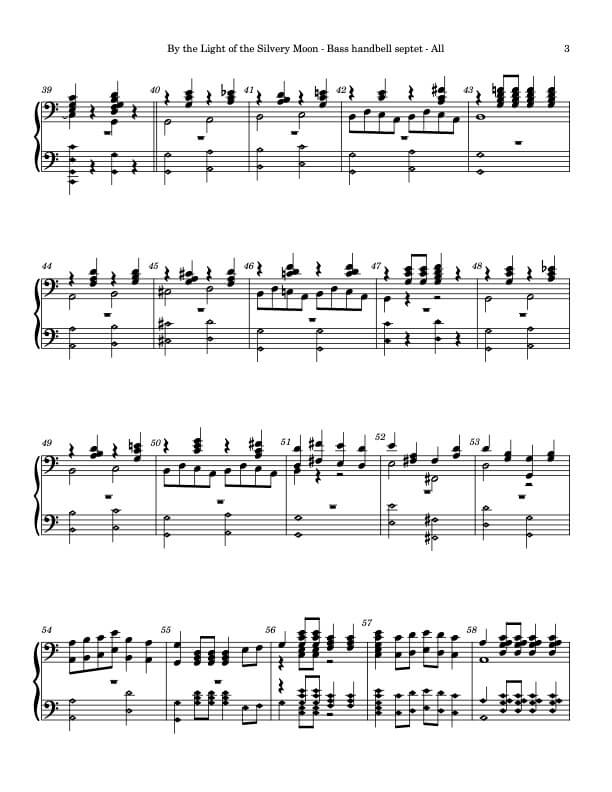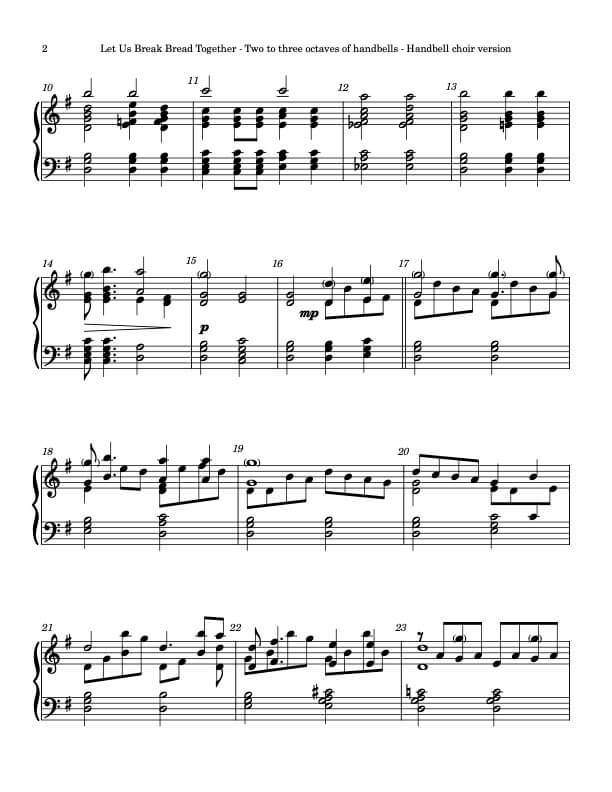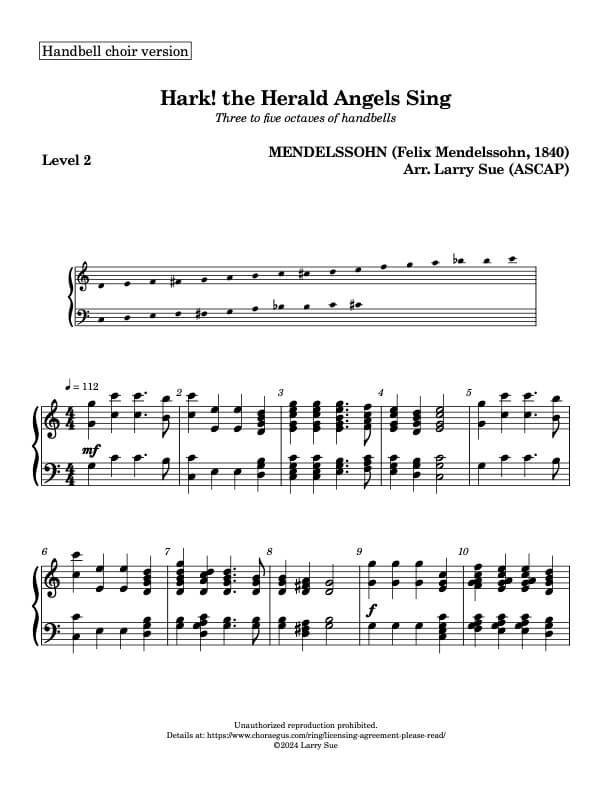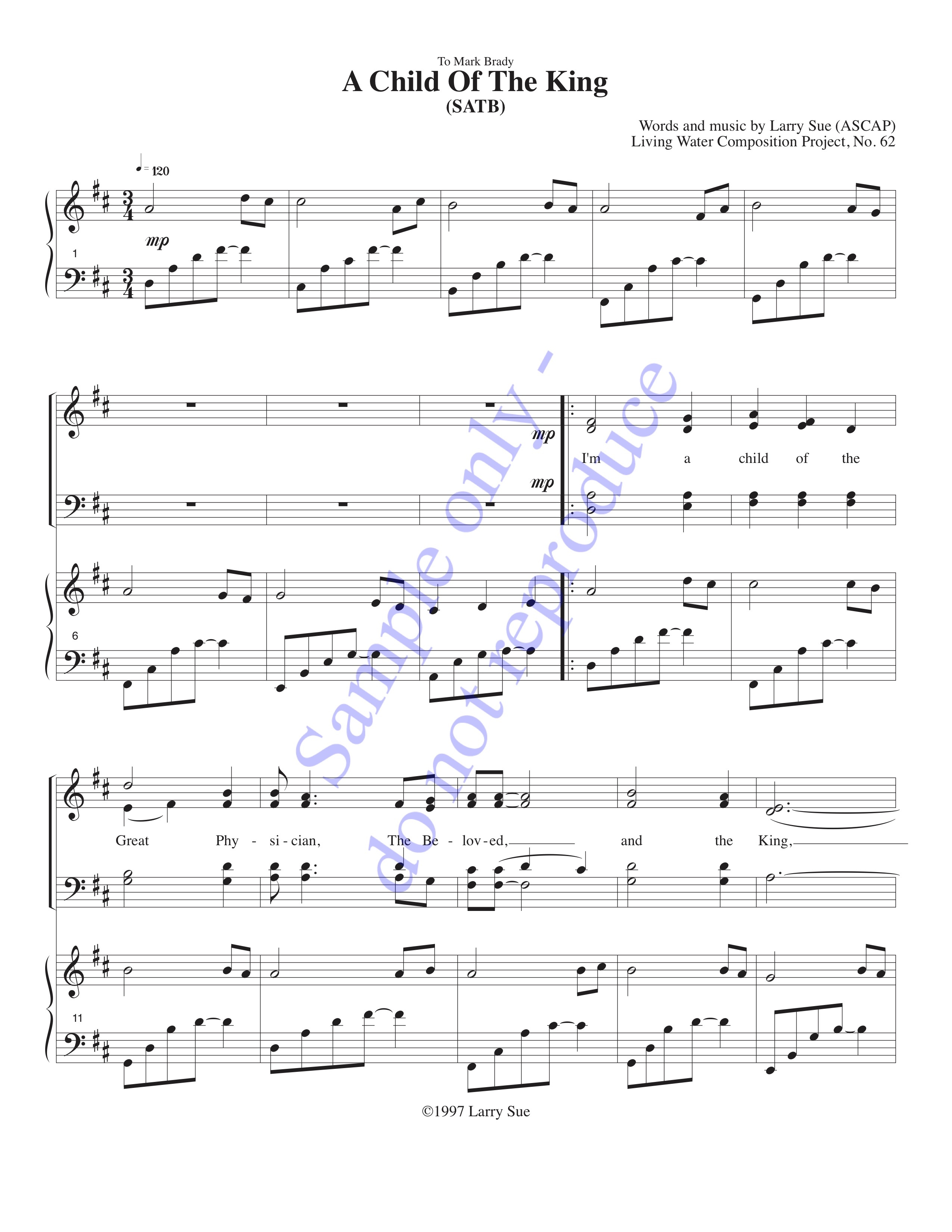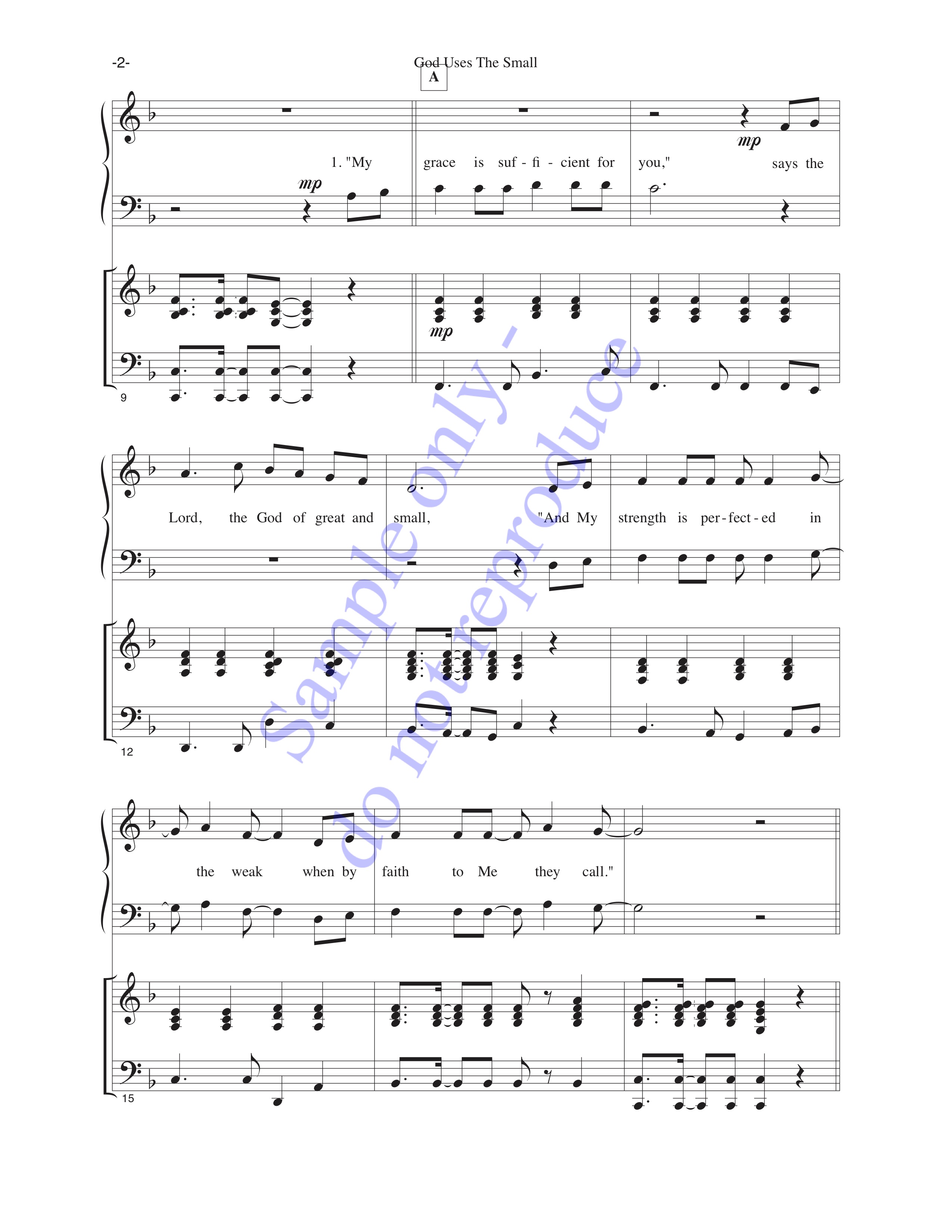Sandmännchen is a lullaby by Johannes Brahms that speaks of how the flowers work hard making wonderful scents during the day, and rest at night. Die Blümelein, sie schlafen schon längst im Mondenschein, sie nicken mit den Köpfen auf ihren Stengelein. Es rüttelt sich der Blütenbaum, er säuselt wie im Traum: Schlafe, schlafe, schlaf du, …
Tag: handbells
Handbells were invented in 17-century England as a practice tool for tower bell ringers. They could then rehearse in warmer and cheerier places than belfries - to wit, the local pubs. At some point, someone noticed that it was possible to play tunes (rather than just "changes") on handbells, and so "tune ringing" began. The music available from Choraegus followed the tune ringing tradition as practiced and performed in the modern era,
Mar 11
Sändmannchen – for eight handbells
Johannes Brahms wrote a lullaby that speaks of how the flowers work hard making wonderful scents during the day, and rest at night. A little bit of quietude seems to be a really good idea in today’s world. Perhaps playing and sharing our eight-bell arrangement will bring some peacefulness. Purchasing this 8-bell arrangement gives you …
Mar 08
For the Beauty of the Earth (DIX) (Handbells, 3-5 octaves plus handchimes, 2 octaves, Level 3-)
When we published our arrangement of For the Beauty of the Earth (hymn tune DIX) a while back, we know it would be fun to play. Now that we’ve figured out how to make “clone” videos of larger-scale pieces, we have a new video to show how it really sounds on handbells! This piece is …
What Child is This?/Greensleeves – Twelve handbells
There are many stories about Greensleeves. Some historical references say that Henry VIII wrote it… but it had to be someone else because it was written after he’d died. However, it was “on the charts” by Shakespeare’s time, so it’s been around for quite a while, and often appears during Christmas in the form of …
Mar 04
Sing Praise to God Who Reigns Above – for twelve handbells
We have a new arrangement of Sing Praise to God Who Reigns Above for twelve handbells. Sing praise to God who reigns above / the God of all creation, The God of power, the God of love / the God of our salvation. With healing balm my soul is filled / and every faithless murmur …
Sing Praise to God Who Reigns Above – Twelve handbells
Sing Praise to God Who Reigns Above was first published in the Bohemian Brethren’s Kirchegesange in 1566. It speaks of constant reliance of God and His ability to make our lives what He wants them to be. Sing praise to God who reigns above / the God of all creation, The God of power, the …
Mar 01
All Things Bright and Beautiful (ROYAL OAK) – for Handbells, 3/5 octaves, Level 3+
Written in 1849 by Cecil Frances Alexander, this joyous text and its happy melody are perfectly matched. Add a bit of rhythmic touch, and you have our arrangement for handbell choir! All things bright and beautiful, all creatures great and small, All things wise and wonderful, the Lord God made them all. Purchasing the handbell …
For the Beauty of the Earth (DIX) (Handbells, 3-5 octaves plus handchimes, 2 octaves, Level 3-)
The hymn tune DIX is usually sung with the texts For the Beauty of the Earth and As with Gladness Men of Old (the latter most often at Christmas). For the beauty of the earth, For the glory of the skies, For the love which from our birth Over and around us lies. Christ, our …
All Things Bright and Beautiful (ROYAL OAK) (Handbells, 3 or 5 octaves, Level 3+)
Cecil Frances Alexander wrote All Things Bright and Beautiful in 1849. The joyous text and its happy melody are perfectly matched! All things bright and beautiful, all creatures great and small, All things wise and wonderful, the Lord God made them all. Each little flow’r that opens, each little bird that sings, He made their …
This Joyful Eastertide (VREUCHTEN) – Eight handbells
The Joyful Eastertide is a triumphant hymn for Easter Sunday (and all year round!) from the seventeenth century. This joyful Eastertide, away with sin and sorrow! My Love, the Crucified, has sprung to life this morrow: Had Christ, who once was slain, not burst His three-day prison, our faith had been in vain; but now …


